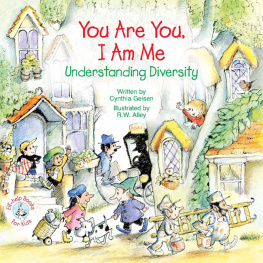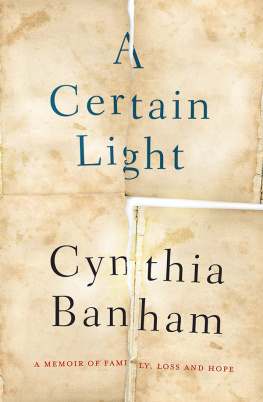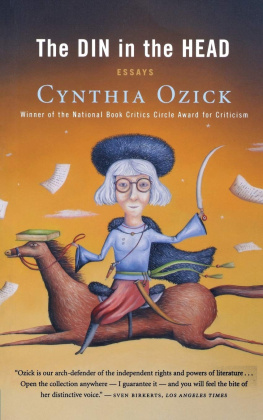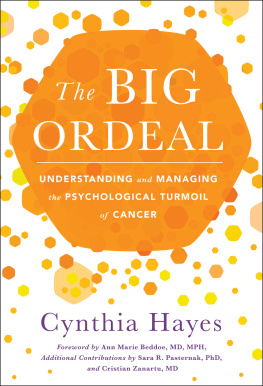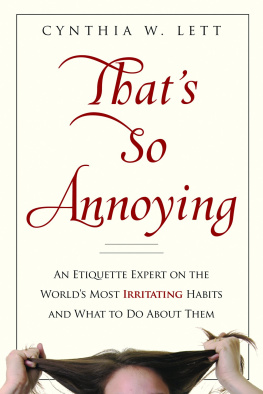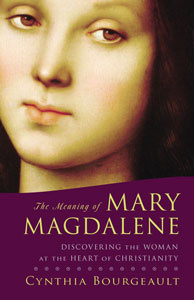New York University Press
New York and London
Copyright 1994 by New York University
All rights reserved
Library of Congress Cataloging-in-Publication Data
Burack, Cynthia, 1958
The problem of the passions : feminism, paychoanalysis, and social
theory / Cynthia Burack.
p. cm.
Includes bibliographical references (p. ) and index.
ISBN 0-8147-1208-8
1. Feminist theory. 2. Emotions. 3. Psychoanalysis. 4. Object
relations (Psychoanalysis) I. Title.
HQ1190.B85 1994 93-22153
305.42dc20 CIP
New York University Press books are printed on acid-free paper, and their binding materials are chosen for strength and durability.
Manufactured in the United States of America
10 9 8 7 6 5 4 3 2 1
Acknowledgments
For their inspiration and for their careful and thoughtful readings of this manuscript, I would like to thank Fred Alford, Jim Glass, Ron Terchek, and Evelyn Beck. For additional suggestions on parts of the manuscript I am grateful to Jyl Josephson, Jeff Mann, and Phyllis Palmer. Tara Spigai, Susan Berger, and Alayna Waldrum provided patient and efficient research assistance. Friends, too numerous to mention, have been by turns supportive, critical, and outrageous through the years. Thank you all for making my work agreeable.
Excerpts from chapter 2, entitled A House Divided: /Feminism and Object Relations Theory, appeared in Womens Studies International Forum,15(4), 1992, 499506. Excerpts from chapter 4, entitled Love, Rage, and Destruction: Donald Winnicott and Social Theory, appeared in Psychoanalysis and Contemporary Thought, 16(3), 1993.
Finally, I wish to thank the Wallace Literary Agency, Inc., and Alfred A. Knopf, Inc., for granting me permission to quote from The Moon Is Always Female by Marge Piercy. Copyright 1980 by Marge Piercy; Farrar, Straus and Giroux, Inc., and Faber and Faber, Ltd., for an excerpt from For Your Own Good by Alice Miller, translated by Hilde-garde and Hunter Hannum. Translation copyright 1983 by Alice Miller; Harper Collins Publishers for an excerpt from Their Eyes Were Watching God by Zora Neale Hurston, copyright renewed 1965 by John C. Hurston and Joel Hurston. Foreword copyright 1990 by Mary Helen Washington. Afterword, Selected Bibliography, and Chronology copyright by Henry Louis Gates, Jr.; Allen & Unwin for an excerpt from The anti-feminism of Hannah Arendt in Hannah Arendt: Thinking, judging, Freedom, edited by Gisela T. Kaplan and Clive S. Kessler. Copyright 1989 by G. T. Kaplan and C. S. Kessler.
Introduction
A silence surrounds certain of the passions in everyday social life. Although we know from intimate experience the ubiquity of rage, hatred, and other negative passions, such passions are rarely accorded the attention and scrutiny given to more pleasant aspects of human experience. This is not surprising; it is disquieting to dwell on the negative, and especially on the negative within oneself. It is easier, and can appear more constructive, to grant reality only to the positive, even at the risk of disowning parts of the self.
Feminists are acquainted with passions of rage and hatred, realized in the course of struggling to know feelings that have been denied. At the same time feminists are also forced to recognize the rage, fear, and hatred of others whose stable self- and social understandings are challenged by feminist beliefs and acts. In spite of (and perhaps because of) such experience, feminists are no less prone than many others to imagine and work toward an ideal world of relations from which these distressing and dispiriting passions have been excised.
Social and political theorists have long wrestled with the passions as a political conundrum. The passions have been understood as constructing certain forms of knowledge and community, and as rupturing others. Yet theorists have also been ambivalent about the passions. They have been particularly ambivalent about womens passions, and it is possible that this tension is motivated by the suspicion that attending to the passions and their role in social life illuminates much of what isactive and creativeand therefore anarchic and disruptiveabout the self.
Feminists have long challenged normative accounts of selfhood and subjectivity that disempower womens feelings, thought, speech, and action. In the modern Western philosophic tradition, selfhood has frequently been depicted as solitary, rational, principled, abstract, and genderless. Feminist theorists implicate such an account of selfhood in the perpetuation of womens oppression and systematically deny its adequacy to describe the multiplicity of womens historic experiences and values.
By reconceptualizing accounts of passionincluding the role of the passions in constituting human beings as moral and political actorsfeminists have often related differently to the passions than have other thinkers, adopting a unique, dual strategy in thinking about them. The first move is to demonstrate the feminine capacity for nurturance, love, empathy, and care for others; the second is to rescue the capacity of the self so reconstructed in terms of moral and political agencythat which has been denied to emotional beings in general, or women in particular.
With few exceptions, accounts of human nature in Western enlightenment political thought are embedded in, and inextricable from, assumptions about human nature, or the nature of self, that exclude women. These accounts have been, and continue to be, buttressed by arguments and assumptions about the public sphere as male and the private as female. In addressing the role of passion in the constitution of selves and communities, feminist theorists have critiqued much of the modern Western political tradition.
Prior to the twentieth century, feminists had already begun to challenge this dichotomy of public and private spheres and the content ascribed to them in theory and practice. Yet the resuscitation of the place of passions has been a more recent development in feminism. It has been encouraged by increasing interest in and use of the diverse psychologies, and especially by the wedding of feminism with psychoanalysis. However, most feminist theory continues to focus on the emotions that have been understood either as part of womens nature, or as necessary to womens caretaking functions. The ostensibly less functional, less natural, passions in women have suffered philosophic neglect.
Moral and political philosopher David Hume called passions such as anger, rage, and hatred disagreeable. It is nonetheless true that Humes language regarding the passions suggests no disapprobation and invites no value judgment on the experience of these passions.
There is no [wo] man who, on particular occasions, is not affected with all the disagreeable passions, fear, anger, dejection, grief, melancholy, anxiety, etc. But these, so far as they are natural and universal, make no difference between one [wo]man and another, and can never be the object of blame.
The disagreeable passions are not absent in women; indeed, they have empowered the second wave of feminism. Feminists have spoken of the need to mobilize passions denied to women in the service of political action, social change, and consciousness raising. In spite of this, and amid the fervor of discovering and employing depths of rage, despair, and hatred, an analytic gap has emerged within feminist theory. To say that feminist theory has failed adequately to theorize their existence would be to indict a literature that is now too vast to summarize responsibly. However, one variety of feminist theory has been in a unique position to provide a basis for understanding the disagreeable passions, yet has been unable consistently to do so.




